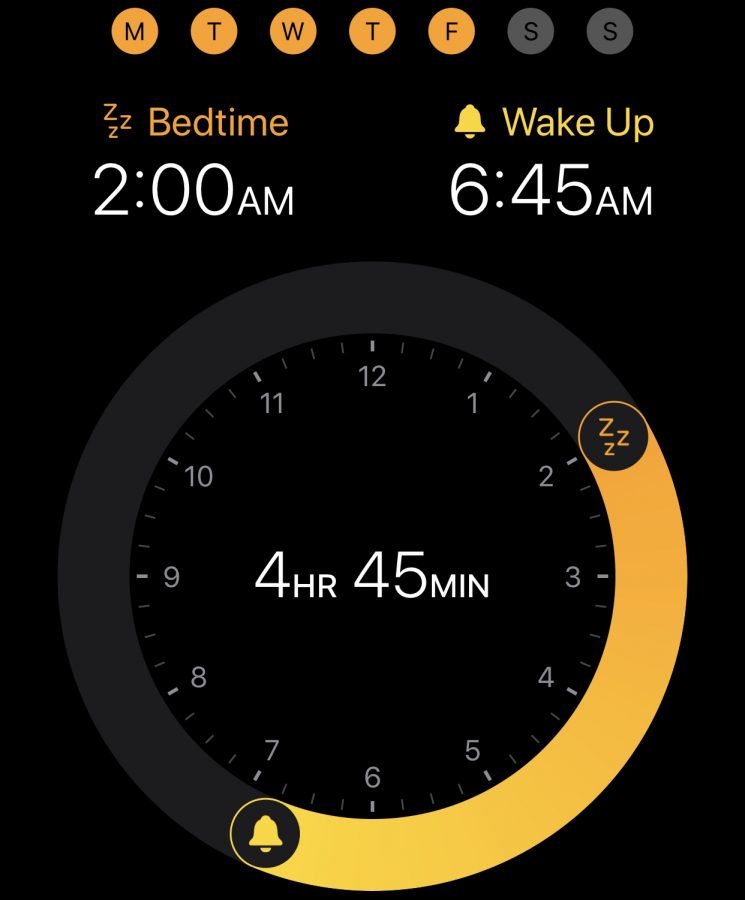“We’re not giving them a chance to dream”
January 6, 2020
For high school students, waking up at the crack of dawn to carry-out an entire school day is not at the top of their list of favorite things to do, but their days only get worse when they’re showing up with only two hours of sleep.
In the last decade, nationwide studies conducted by the American Academy of Sleep have shown that approximately 73% of high school students are not getting enough sleep, affecting their performance throughout their school day.
It is certainly no strange event to teachers or peers, when a student shows up constantly yawning, with heavy bags under their eyes, or even just feeling slightly moodier. We all know the source. Though, it starts to become a problem when a student’s lack of sleep negatively impacts their mental health and grades.
FLHS senior Tierney Maloney sometimes feels slightly dimmed throughout her school day, “I feel like it’s hard to stay focused, and engage in conversation with others throughout the day, when all I’m thinking about is wanting to go home and just sleep.” She goes on to express how she prioritizes during sports seasons. “When I’m in season, sleep and making sure I eat every day is so important for me. Staying up late, not eating enough before I need to run for 2 hours or travel for games is not good.“
Professionals from the Stanford Sleep Disorders Clinic, refer to this as “[the] generation of teens growing up chronically sleep-deprived.” Sleep deprivation has proven to increase chances of depression, anxiety, poor grades, and even behavioral outbursts amongst teens.
This being said, many point to the high demands placed on a high school student as the leading issue – “jolted out of bed before they are physically or mentally ready to start their day,” referring to the early start time, and the seemingly never-ending pile of assignments received per week.
Tillie Freed, another FLHS senior, went on to address this issue directly, “By the time I get home from school, I automatically have to start thinking about school again. It just never really leaves [us]. Sometimes I’ll be doing school work for so long, that I don’t even remember what time I started. I’ll look up and be like ‘Oh, its two am? Great.’”
Sleep is vital to all human life. So, when did it become another chore on the list of things that has to get done, instead of the delightful end to each day? Rafael Pelayo, a professor of psychiatry and behavioral sciences at Stanford, states, “We’re not giving them a chance to dream,” in the figurative and literal sense of this statement; the more decline students face in their sleep time, the bigger the chance they have of giving up on dreams due to poor academic performance, or mental health issues.
Maloney went on to explain, “I try to prioritize sleep over studying until one am for a test I would have the next day, because it will affect how well I can focus when the test actually comes.” Hearing from students about how lack of sleep affects their daily lives is shocking; how are they expected to manage it all and go on to sleep a full eight hours?
As proven by many scientists, researchers, and even straight from the source of the students to whom it is affecting the most: sleep deprivation is no joke. Trying to manage one’s own health in a still-developing life and body of a teenager is difficult, and the list of pressures seems never-ending.

